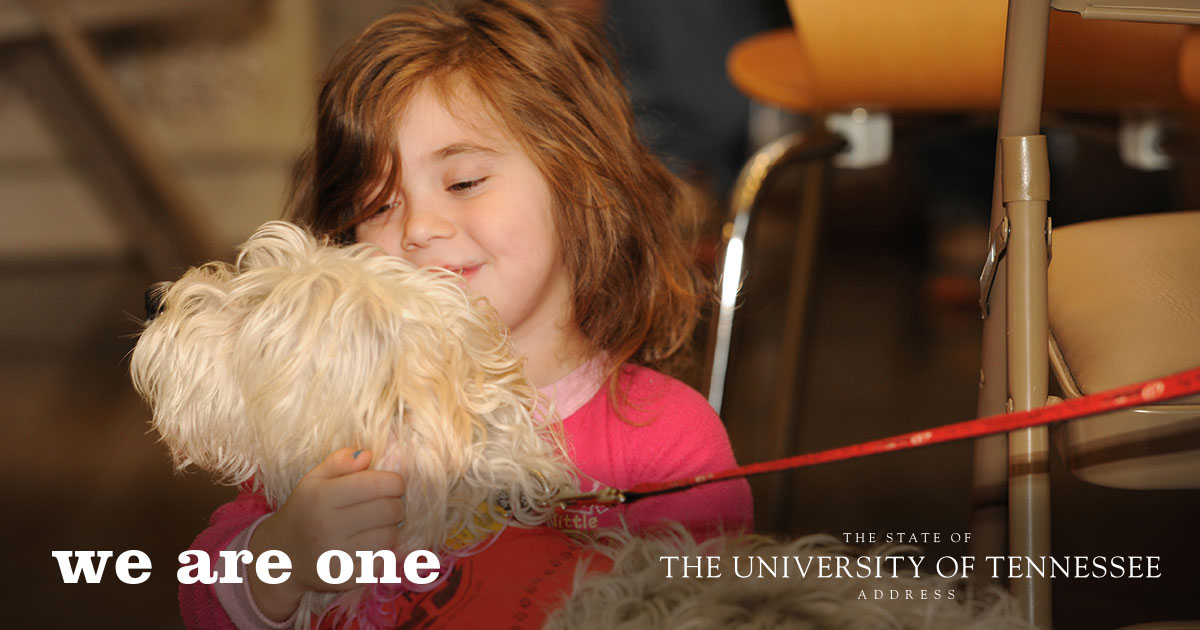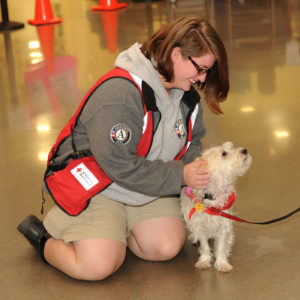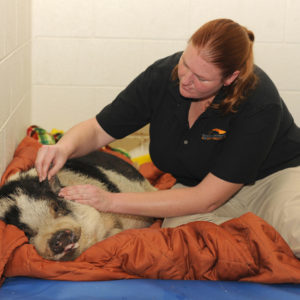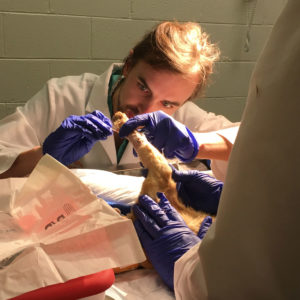A Helping Hand
From caring for injured pets to donating money, the University of Tennessee Institute of Agriculture helped those whose lives were changed by the 2016 East Tennessee wildfires.
“We were all overwhelmed by the enormity of devastation surrounding the Gatlinburg wildfires, but I was not surprised at the depth of response from the faculty, staff and students at the UT Institute of Agriculture,” said Tim Cross, UTIA chancellor. “Our people have hearts of gold, and it showed. From treating animals suffering from the effects of fire and smoke, to raising funds for families who lost homes and belongings, to volunteering to help people begin the task of rebuilding their lives, folks from UTIA were there. We truly are dedicated to our mission of providing ‘real life solutions’ to the people of Tennessee.’”
UT College of Veterinary Medicine supported the Sevier County Humane Society with veterinarians, vet students and triage assistance to help injured pets. The College treated 22 animals (two pigs, one dog, and 19 cats) with severe injuries. Licensed veterinary technicians volunteered at the humane society’s emergency shelter at the county fairgrounds.
Four Human Animal Bond in Tennessee teams (human and dog) worked at the human shelters for almost two weeks to provide animal-assisted therapy, while the Companion Animal Initiative of Tennessee coordinated needed supplies such as pet oxygen masks, medications, syringes, thermometers and fluids to care for injured pets.
The UT Extension Department of Family and Consumer Sciences developed a website that compiled information on available resources. UTIA and Tennessee 4-H collected $60,000 in gift cards to aid victims. In Sevier County, UT Extension agents and staff spent hours providing help.
The College of Agricultural Sciences and Natural Resources led a donation drive on the ag campus, which was met with an outpouring of contributions by students, faculty, and staff.
Students enrolled in forestry fall camp were boots on the ground combating the fires. On their first day of camp, students helped the Tennessee Division of Forestry contain a large fire on private property that had been burning for several weeks. The second day, students joined staff of the UT Forest Resources’ AgResearch and Education Center to fight a fire that burned 1,000 acres of the Center’s Cumberland Forest in Morgan County.
“Since we were not able to light fires because of bans on burning, we spent two days helping to fight them instead,” said associate professor Jennifer Franklin, who teaches prescribed fire management in the department of forestry, wildlife and fisheries.





